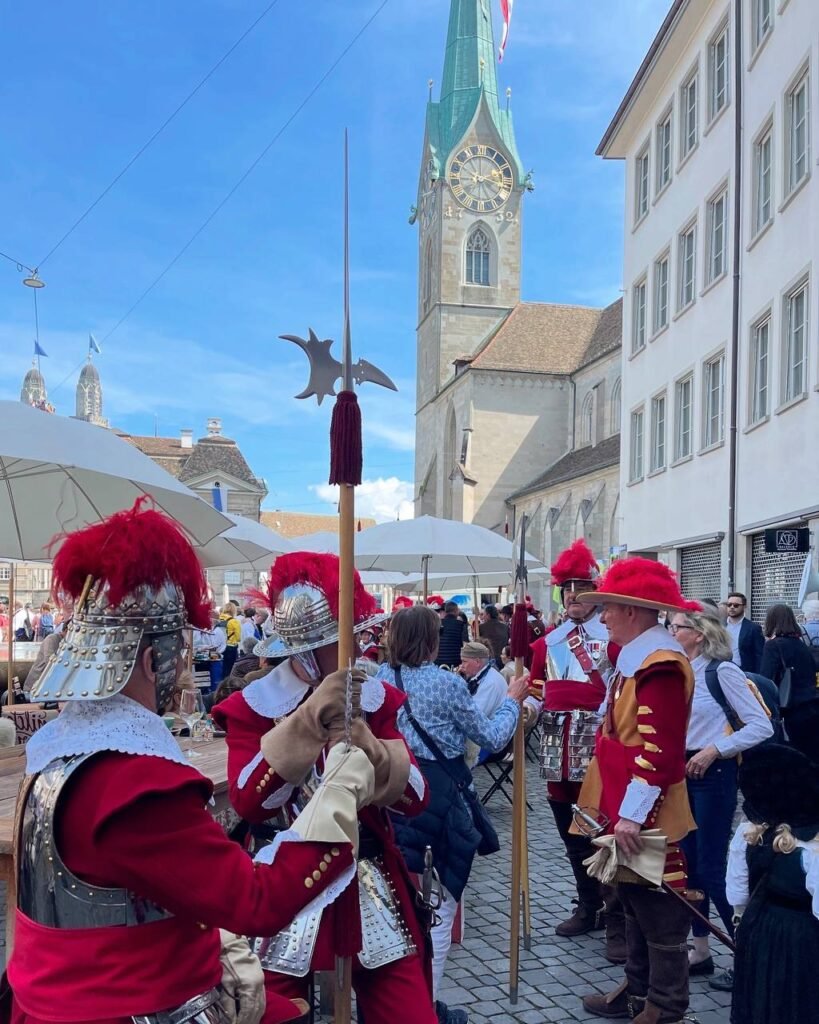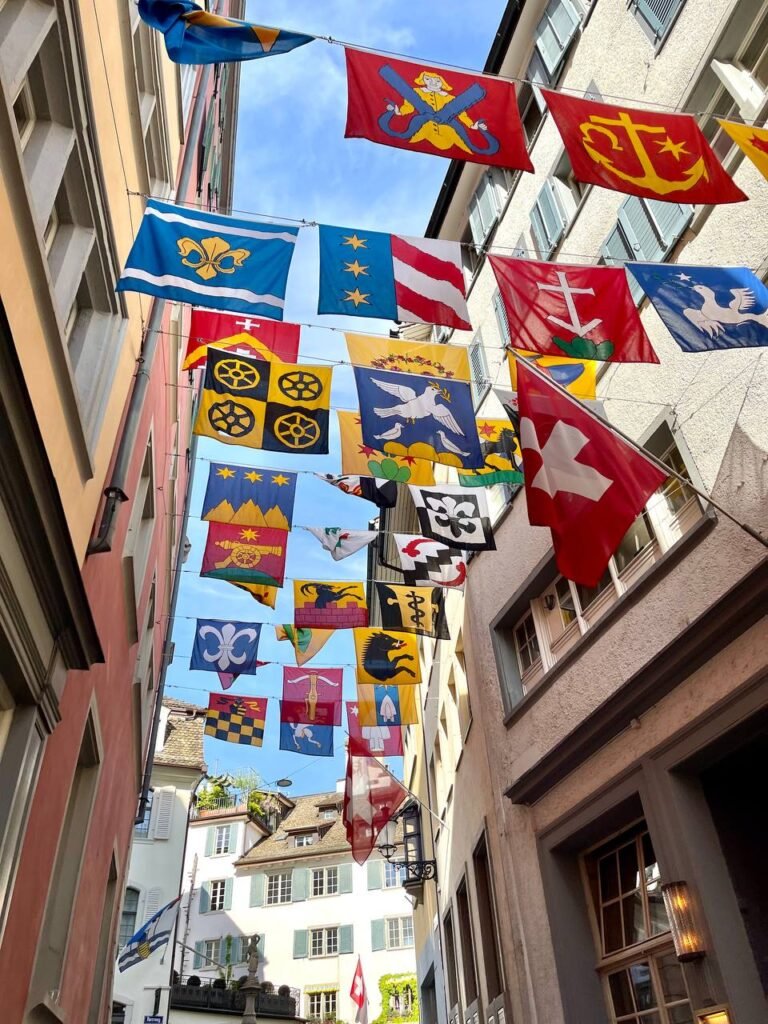Imagine this:
You’re a citizen. You have a name, a profession, the freedom to vote — and the right to choose your leaders (along with the occasional right to be wrong). You work, maybe you own a business, or maybe not. You can wear jeans, pajamas, or a fluorescent jacket and walk through the city without anyone batting an eye. Feels normal, right?

Now try to picture this through the eyes of an 18th-century European.
Back then, most people didn’t even have last names. You were just “Hans the shoemaker” or “Greta from the bakery.” That changed when Napoleon handed out Swiss passports — and with them, last names. Congratulations, you’re now officially “Rudolf the Plumber–Baker.” Practical? Sure. Fancy? Not so much.
In Zurich’s square with banners wide,
Young Rudolf walked with double pride —
A wrench in hand, a baker’s hat,
A coat of arms (well… sorta that).
“My lordship’s gone,” he said with cheer,
“But now I patch both pie and sewer!
The guilds parade, the Böögg must burn —
And nobler titles, they can wait their turn.”
So march ye forth, ye trades with grace!
For every plumber has his place.
And if your bread comes slightly cracked —
The mayor once baked worse. That’s a fact.

We take so much for granted today. But when old worlds vanish, nostalgia rises — and nowhere is this felt more vividly than at Zurich’s most iconic spring event: Sechseläuten.
This isn’t just a festival.
It’s a live-action journey into guild life before the Helvetic Republic.
Marching bands, historical uniforms, parades, noble pageantry, and the fiery climax — the burning of the Böögg, a snowman packed with fireworks whose fate is believed to predict the summer ahead.
Feel like playing a role in living history?
You don’t need to audition in Hollywood. Just come to Zurich in April — and step into the past, with fire, humor, and a parade that echoes across centuries.